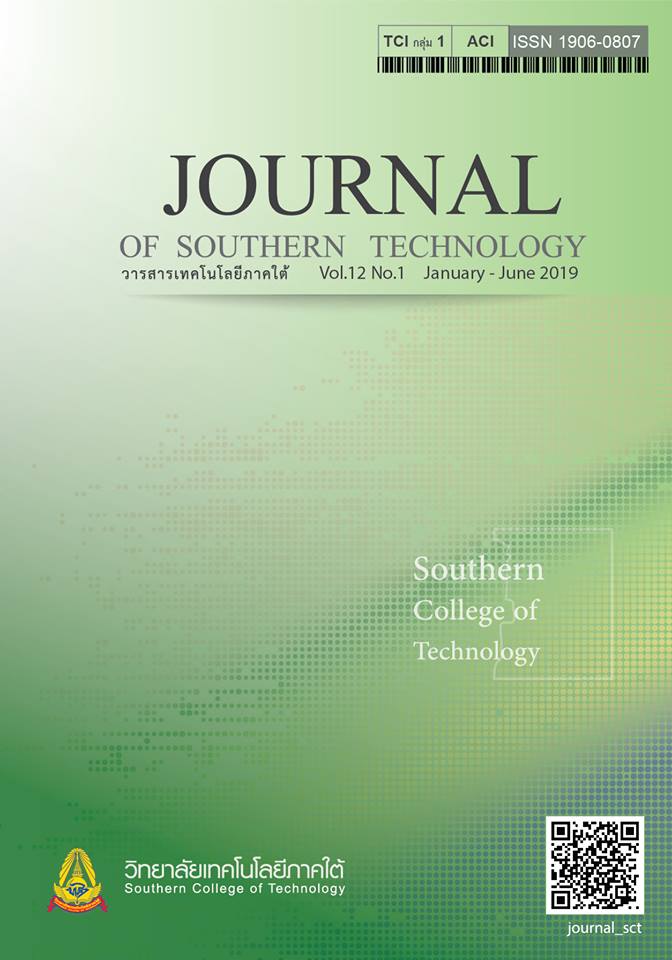The Structural Model of Sustainable Management of Medium-sized Hotel in Bangkok
Main Article Content
Abstract
The objectives of this research were: 1) to study important level of variables, 2) to analyze the structural equation model affecting sustainable management, and 3) to determine sustainable management of medium-sized hotel in Bangkok. The research was based on quantitative model. Sampling group was 650 hotel managements from 200 medium-sized hotels in Bangkok. Tools used for this research was questionnaire with 0.975 confident level. Statistics used in data analysis were mean, standard deviation, structural equation model analysis (SEM), multicollinearity test, and confirmatory factor analysis. The results found that 1) the means of the enterprise’s characteristics, including response to expectation of stakeholders, business competition, business management, and the sustainable management were at high level both overall and each aspects. 2) sustainable management was directly influenced by two variables which are business management having direct influence value = 0.72 and following by business competition having direct influence value = 0.26 at .01 significant level. The two variables could describe the variance of the sustainability management of 93 percentage and 3) sustainable management for medium-sized hotels in Bangkok consisted of 7 key dimensions comprise economic-finance, economic-technologies and innovation, social-employee, social-customers, social-community, environment-energy and environment-environment. Therefore, medium-sized hotels in Bangkok must focus on business management and business competition strategy, and pursue the plan of sustainable management in order to enhance business potential, competitiveness and survive sustainably.
Article Details
-
Authors must agree to the journal publication rules and allow the editors to edit the manuscripts for publication.
-
Author’s right belongs to the author but Journal of Southern Technology holds the right of first publication and thus allow readers to use the article for the purpose of education but not commercial.
References
Bae, H., & Smardon, S. R. (2011). Indicators of Sustainable Business Practices. Department of Environmental Studies,
SUNY College of Environmental and Science and Forestry, USA.
Bordean, O. N., & Borza, A. (2014). Strategic management practices within the Romanian hotel industry. Contemporary
Approaches and Challenges of Tourism Sustainability, 16(8), 238 -252.
Elkington, J. (1997). “Cannibals with Forks - the Triple Bottom Line of Twenty-First Century Business”. Mankato, MN:
Capstone.
Enz, A. C. (2011). Competing Successfully with Other Hotels: The Role of Strategy. School of Hotel Administration
Collection. Cornell University School of Hotel Administration. The Scholarly Commons. Cornell University,
cae4@cornell.edu.
British Standard Institute. (2016). International Standard ISO 9001:2015. Quality Management System Handout.
[in Thai]
Dusit Thani Public Company Limited. (2015). Annual Report 2015. [in Thai]
Galicic, V., & Laskarin, M. (2014). Internal Marketing in the Hotel Industry. Tourism and Hospitality Industry 2014.
Congress Proceedings Trend in Tourism and Hospitality Industry, pp. 297 -312.
Hatten, T. S. (2012). Small Business Management: Entrepreneurship and Beyond. (5th ed.). South-Western, Cengage
Learning.
Kenan Institute Asia. (2010). The ASEAN SME Regional Development Fund Conceptual Framework.
Marr, B. (2012). Key Performance Indicators : The 75 Measures Every Manager Needs to know. Financial Time
Publishing, Pearson.
Ministry of Tourism and Sports. (2017). International Visitor Arrival to Thailand and Receipts in July 2017. [in Thai]
Minor International Public Company Limited. (2016). Sustainability Report 2016. [in Thai]
National Statistic Office, Ministry of Information and Communication Technology. (2014). The 2014 Hotels and Guest
Houses Survey. Retrieved June 10, 2017, from https://service.nso.go.th/nso/nsopublish/themes/files/
questFullReport57.pdf. [in Thai]
Olawale, F., & Garwe, D. (2010). Obstacles to the Growth of new SMEs in South Africa: A principal component analysis
approach. African Journal of Business Management; Victoria Island 4.5, (May 2010), 729-738.
Porter, M. E. (1985). "Competitive Advantage". The Free Press. New York. Chapter 1, 11-15.
Prabawani, B. (2013). Measuring SMEs’ sustainability: a literature review and agenda for research. International Journal of Management and Sustainability, 2(12), 193-207.
Santos, A., Mexas, P., Mirian, M., & Jasmim, M. (2017). Sustainability and hotel business: criteria for holistic, integrated and participative development. Journal of Cleaner Production, 142 (2017), 217 – 224.
Stylos, N., & Vassiliadis, C. (2015). Differences in Sustainable management between Four-and Five-Star Hotels Regarding the Perceptions of Three-Pillar Sustainability. Journal of Hospitality Marketing & Management. February 2015.
Tabachnick, B. G., & Fidell, L.S. (2001). Using Multivariate Statistic. Boston: Allyn and Bacon, pp. 82-83.
Tambunan, T. (2011). Development of Small and Medium Enterprises in ASEAN Countries. Read worthy Publication. Ltd.
Yusof, Z. B., & Jamalusin, M. (2013). Green approaches of Malaysian Green Hotels and Resorts. Procedia – Social and Behavioral Sciences, 85, 421 -431.

